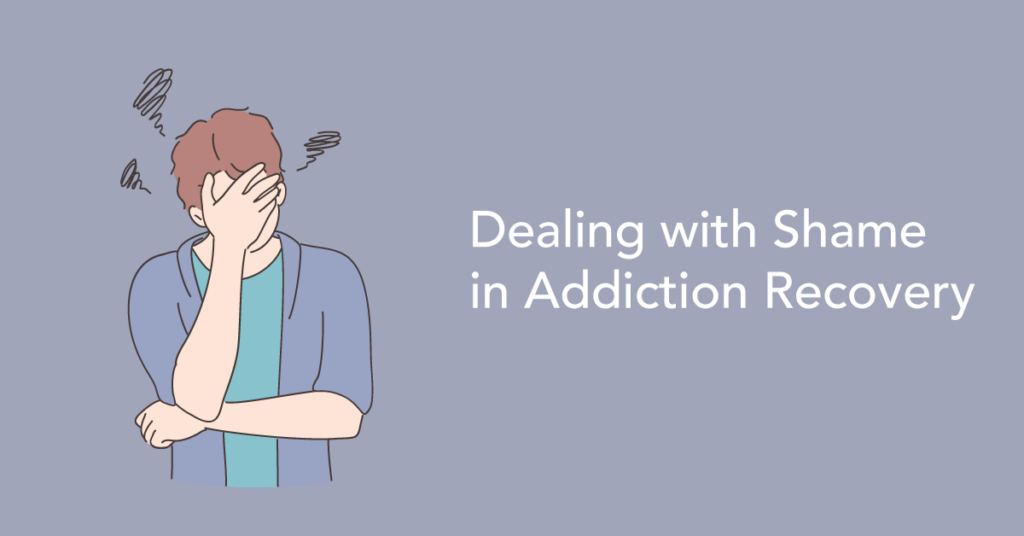Guilt and shame are common emotions felt by people who’ve fallen victim to drug or alcohol addiction. These emotions can damage a person’s self-esteem and make it difficult for them to rebuild damaged relationships and maintain a healthy lifestyle in the long term. However, if properly harnessed, shame can be an important catalyst for someone to seek help. Learning how to process and utilize guilt and shame in recovery helps set up recovering individuals for success going forward.
The Role of Guilt and Shame in Recovery
Guilt refers to the feeling of remorse a person has after they’ve done something wrong. Shame is similar to guilt but is a deeper emotion. Someone who feels guilty for doing something regrets what they did. Someone who feels shame has internalized that guilty feeling and believes they’re a terrible person because of their actions.
Guilt can have a positive role to play in recovery because it motivates a person to do better and make amends. Shame, however, is more likely to be harmful. If a person feels shame, they might engage in destructive behaviors, sabotaging their recovery because they don’t believe they’re worthy of a happy, healthy future.
How Shame Can Hinder Addiction Recovery
Feelings of shame can prevent a person from even attempting recovery. Someone struggling with drug and alcohol use may believe the people they hurt during their addiction will never forgive them and that it’s not worth trying to get back on track.
If someone does manage to work past those negative thoughts, persistent thoughts of guilt and shame can make it hard for them to stay clean. The road to recovery is rarely easy, and it’s normal for even the most well-intentioned and disciplined person to face some bumps in the road.
Recent research published by the U.S. Department of Veterans Affairs Palo Alto Health Care System states that, on average, two-thirds of people treated for alcohol use disorder relapse within 6 months. Any relapse or bad day is a chance for those feelings of shame to resurface, making it even harder to accept the mistake and try to do better the next day. Learning how to manage those feelings of shame is an important part of long-term recovery.
How to Overcome Shame During Recovery
The first step toward overcoming guilt and shame in recovery is to recognize those emotions and understand they’re a normal part of the recovery process. If you’re feeling low, unmotivated or unhappy, take a moment to consider if guilt or shame is underpinning those emotions. Once you can name the emotion, you can process it and move past it.
Some useful coping strategies to help deal with shame and other negative emotions include:
- Journaling
- Exercise
- Support groups
- Engaging in a hobby that occupies your mind
- Talking to your therapist
Keeping busy with exercise or a productive hobby serves two purposes: It distracts you in the short term, and it helps you build positive long-term habits, giving you something positive to make a part of your identity.
While some people do well with self-help strategies, others need more assistance. Talking to a therapist can help you learn how to recognize the emotions you’re feeling and silence that voice of self-doubt before it takes over. With time and practice, you can break the cycle of shame, negative actions and regret and form new habits that give you pride and confidence.
Rebuilding Self-Esteem as Part of Recovery
Addiction is an issue that has multiple factors. There’s the biological aspect of drug addiction; then there are social and psychological factors. Some rehab centers help people with the biological aspect of withdrawal but fail to address those other factors.
After going through biological withdrawal, a person might feel happy and full of enthusiasm for their new future. However, if they return home to an environment where their social network still uses the substance they were addicted to and still have the same daily stresses that led to them using addictive substances, they’re likely to relapse.
A good therapist or addiction specialist will work on those social and psychological factors, providing coping mechanisms and strategies to help prevent a relapse. Building self-esteem is a major part of this, especially for people who come from difficult environments and fell victim to addiction because they had poor self-esteem to begin with.
Some techniques for improving self-esteem include:
- Self-forgiveness. Many individuals with poor self-esteem tend to over-analyze everything they do. Learning to forgive yourself for your past mistakes while also learning from them is a big step forward for those individuals.
- Positive self-talk. Focusing on what you like about yourself or are good at can help you feel better about yourself during challenging times. Write down some things you like about yourself and refer back to this list if you’re having a bad day.
- Help others. Acts of kindness, large or small, are a great way to spread some joy in the world, not only for yourself but also for the recipient.
- Find something that’s yours. If your social life previously revolved around meeting people in environments where substance abuse was common, you may find yourself at a loss when you no longer indulge in those substances. Finding a new activity to focus on and a new group of friends who lead healthy lifestyles can be invaluable.
If you’re going through recovery and finding it hard to cope with feelings of guilt or shame, talking to someone can help. The Mental Health Hotline is free and open 24-7 to connect people to compassionate, confidential assistance. Contact us today to be connected with free, local support.


